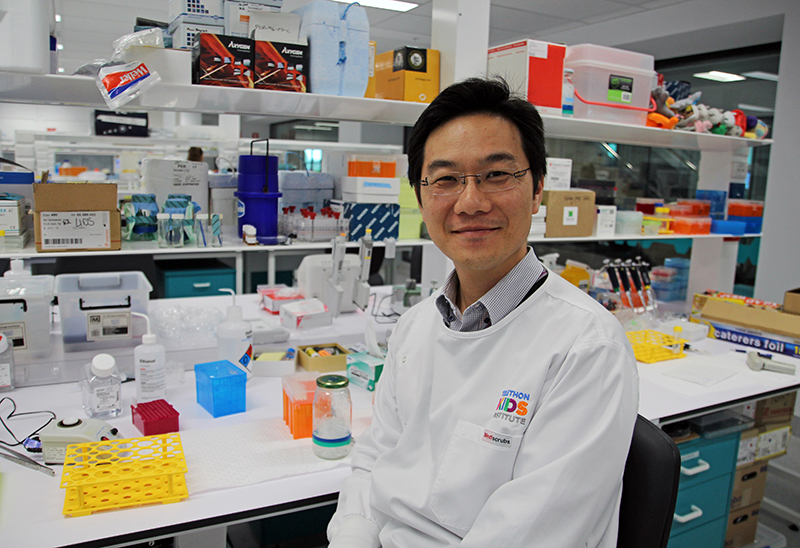Search
Research
Lessons from 50 years of curing childhood leukaemiaOne of the great success stories of modern medicine is undoubtedly the remarkable improvement in outcome for childhood cancer, achieved through the work of...
Research
Effective targeting of the P53-MDM2 axis in preclinical models of infant MLL-rearranged acute lymphoblastic leukemia.This study describes the development and molecular characterization of a panel of patient-derived infant leukemia oncogene xenografts and their sensitivity...
Research
Germ-line and somatic DICER1 mutations in pineoblastomaThis study suggests that germ-line DICER1 mutations make a clinically significant contribution to PinB, establishing DICER1 as an important susceptibility...
Research
A pre-clinical model of resistance to induction therapy in pediatric acute lymphoblastic leukemiaRelapse and acquired drug resistance in T-cell acute lymphoblastic leukemia (T-ALL) remains a significant clinical problem.
Research
Connective tissue growth factor is expressed in bone marrow stromal cells and promotes interleukin-7-dependent B lymphopoiesisHematopoiesis occurs in a complex bone marrow microenvironment in which bone marrow stromal cells provide critical support to the process through direct cell...
Research
Comparative drug screening in NUT midline carcinomaThe NUT midline carcinoma (NMC) is a rare but fatal cancer for which systematic testing of therapy options has never been performed.
Research
Bioenergetic modulation overcomes glucocorticoid resistance in T-lineage acute lymphoblastic leukaemiaDrug-resistant forms of acute lymphoblastic leukaemia (ALL) are a leading cause of death from disease in children.

News & Events
Working to end childhood cancer: A father’s storyDr Laurence Cheung is doing everything he can to end the threat of childhood leukemia. His research has the potential to change countless lives, but he also has another important job – being a dad to three beautiful children.
Research
Invasive fungal disease and antifungal prophylaxis in children with acute leukaemia: a multicentre retrospective Australian cohort studyInvasive fungal disease (IFD) is a common and important complication in children with acute myeloid leukaemia (AML). We describe the epidemiology of IFD in a large multicentre cohort of children with AML.
Research
Antifungal use in children with acute leukaemia: state of current evidence and directions for future researchInvasive fungal disease (IFD) remains a common and serious complication in children treated for leukaemia. Antifungal prescription in children with leukaemia presents unique challenges, particularly due to variation in IFD risk between and within leukaemia treatment protocols, drug toxicities and interactions between antifungals and chemotherapeutic agents.
